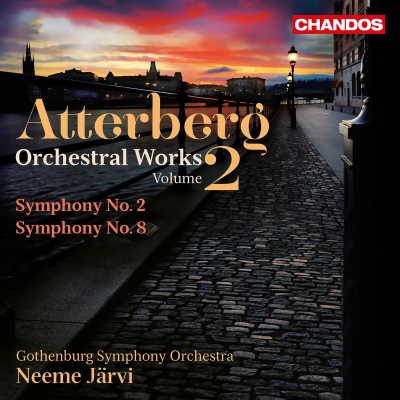
Atterberg: Orchestral Works, Vol. 2
Review by James Manheim The music of Kurt Atterberg has been little heard outside of Sweden. Although he lived until 1967, it was firmly fixed in the late Romantic era, and the composer's musical language did not move forward over time. The Symphony No. 8 in E minor, Op. 48, recorded here, was composed in 1944 and is simpler and more tonal in style than the much earlier Symphony No. 2 in F major, Op. 6. The earlier piece is along the lines of early Sibelius, with an epic sweep and a strong dose of Tchaikovskian drama, adding in on one hand a bit of Swedish folk melody and on the other a slightly more chromatic layer. But conservative does not equal worse, and progressive does not equal better. The real find here is the Symphony No. 8, heavily influenced by Swedish folk music and much more limpid in texture. The aged Sibelius sent Atterberg a telegram upon hearing it, congratulating him on his "cogent" composition, and you can see why Sibelius liked it: the symphony resembles some of the Finnish composer's lighter works (the Valse triste is not so far off), and it seems to have an elegant and original logic of its own. The slow movement (track 5) is absolutely entrancing. Conductor Neeme Järvi and the Gothenburg Symphony Orchestra are on familiar ground here, and this kind of score is Järvi's bread-and-butter: he is muscular and probably on the fast side in the Symphony No. 2 (although there aren't many recordings available for comparison). The Gothenburg strings deliver sustained lyricism in the Symphony No. 8, and they sound great as recorded by Chandos in their own hall. This will be a nice discovery for those who treasure neglected late-Romantic works.
